ENA - ENA English
Headlines
PM Abiy Convenes Council of Ministers for Reviewing 2018 Ethiopia’s Fiscal Year Plan
Jul 14, 2025 266
Addis Ababa, July 14, 2025 (ENA)—Prime Minister Abiy Ahmed convened the Council of Ministers for the upcoming 2018 national development plan review. “We made significant progress during the 2017 Ethiopian calendar year, providing a strong foundation for continued development in 2018,” the Prime Minister wrote on social media pages. “Accordingly, the Council of Ministers has convened to review the national development plan for 2018, including a comprehensive assessment of all sectoral plans, in preparation for implementation in the coming year,” Abiy added. Alongside the review meeting, the Prime Minister further stated that we have also planted Green Legacy seedlings.
Tripartite Agreement on Building Capacity of Political Party Leaders Signed
Jul 14, 2025 235
Addis Ababa, July 14, 2025 (ENA)—Emphasis has been placed on building the capacity of political party leaders in order to create a developed and stable multi-party political system in Ethiopia, Ethiopian Political Parties Joint Council Chairman Solomon Ayele said. The Ethiopian Political Parties Joint Council, the African Leadership Excellence Academy, and the Netherlands Multi-Party Democracy Institute have signed a tripartite agreement today. Speaking during the signing ceremony, the chairman stated that knowledge-based leadership is a prerequisite for building a democratic political system in Ethiopia. And to realize this, organizing training courses that build the capacity of political party leaders is crucial, he added. According to him, the Council is working collaboratively with various stakeholders including the African Leadership Excellence Academy; thus, the Council’s commitment to developing knowledge-based political leadership. Solomon affirmed that the Joint Council of Ethiopian Political Parties will work to the fullest extent to implement the agreement and build a developed and stable multi-party political system in Ethiopia. On his part, African Leadership Excellence Academy President Zadig Abraha said the academy focuses on building the capacity of political party leaders, as this is a key task in the process of establishing a developed democratic political system in Ethiopia. For this, the academy has produced training manuals, leadership development plans, and strategy documents for political parties developed by Ethiopian professionals based on indigenous knowledge, Zadig explained. Zadig further confirmed his readiness to work collaboratively in the process of building a strong multi-party-political system in Ethiopia. Netherlands Institute for Multiparty Democracy (NIMD) Country Director, Yinebeb Nigatu, stated that the institute is providing technical and financial support for the establishment of a strong multi-party-political system in Ethiopia. Pointing out that NIMD has been working with various stakeholders to build a democratic multi-party system, the country director added that the agreement signed will enable the institute to collaborate more closely with the African Leadership Excellence Academy.
Immigration and Citizenship Service Modernizes Operations that Meet Needs, Int’l Standards: Director-General
Jul 14, 2025 201
Addis Ababa, July 14, 2025 (ENA)—The Immigration and Citizenship Service (ICS) has been modernizing its operations to meet national needs and international standards by introducing reforms in the organization, Director-General Selamawit Dawit said today. The director-general made the remark at the opening of a two-day Immigration and Citizenship Service performance review meeting in Addis Ababa. According to Selamawit, the major achievements were made over the last two years. The challenges faced by the service included relying on outdated systems that did not meet national needs and international standards, she added. However, with the advent of substantial reforms, ICS has witnessed significant improvements across its operations over the last two years. Streamlining procedures, enhancing technological infrastructure and competency training for staff were some of the achievements made to foster greater accessibility, timeliness, responsiveness and equity, she stated, noting that the service has been transforming the manual system into a digital one which minimizes bureaucratic hurdles and prolonged queues. The director-general said the service had introduced e-passport, and enhancing its outreach through opening new branches fulfilling material and human resources. After introducing reforms in the Ethiopian year 2015, the service has enhanced its capacity and efficiency in providing services. In this regard, Selamawit stated that over the last Ethiopian Fiscal Year (2017) alone, ICS has provided 1.4 million passports, gave services for 7.2 million travelers, and collected over 34 billion Birr in the budget year. Digital service coverage has increased from 61percent of the previous year to 75 percent and customer satisfaction level jumped from 55 percent to 70.4 percent. Moreover, Ethiopia’s membership to global system of ICAO’s Public Key Directory has been a great success that helped to secure and speed up electronic passport verification.
Ethiopia Kicks Off Regional Diplomacy Training for Young East African Diplomats
Jul 14, 2025 390
Addis Ababa, July 14, 2025 (ENA)— Ethiopia's Ministry of Foreign Affairs launched a regional training program for young diplomats from six East African countries, a move designed to strengthen regional cooperation and further the Pan-African vision of unity and shared prosperity. Organized by Ethiopia’s Institute of Foreign Affairs, the program gathers emerging diplomats from Somalia, Kenya, South Sudan, the Democratic Republic of Congo, Rwanda, and Uganda. The training aims to foster mutual understanding, enhance diplomatic skills, and equip participants to jointly address pressing regional challenges such as terrorism, forced migration, civil unrest, and illicit arms trafficking. In his opening remarks, Adam Tesfaye, Chief of Staff at the Ministry of Foreign Affairs, emphasized the need for collective action to address complex, transboundary issues. "Our region faces multifaceted challenges that no single country can tackle alone," he stated. "This program represents a vital step toward harnessing our collective wisdom and shared commitment to achieve our common goals." Adam also reaffirmed Ethiopia’s historic role in promoting regional dialogue and peace, underscoring that the country’s national development is deeply tied to the region's stability and prosperity. He underscored that Ethiopia’s ambition to become a model of prosperity by 2030 hinges on enhanced regional integration and cooperation. The training initiative itself aims to deepen ties among East African nations, create platforms for collaborative action, foster constructive engagement within the Horn of Africa, and support diplomats in advancing common regional interests globally. Describing Addis Ababa as the "diplomatic capital of Africa," Adam expressed confidence that the relationships and knowledge gained during the training will significantly contribute to long-term regional peace and development. Providing historical context, Professor Brook Hailu of Addis Ababa University delivered a keynote on the evolution of Pan-Africanism. He traced the movement from its early diasporic roots to the founding of the Organization of African Unity (OAU) in Addis Ababa in 1963 and its successor, the African Union (AU), in 2002. Professor Brook characterized Pan-Africanism as a continuing struggle for the continent’s unity, sovereignty, and development. Drawing from his diplomatic experience, including his tenure as Deputy Ambassador to the United Nations, he urged participants to see themselves as bridge-builders, facilitating dialogue, promoting collaboration, and driving forward Africa’s shared vision of peace, prosperity, and global relevance. The training program was then officially declared open, marking a significant milestone in fostering regional diplomatic engagement and cooperation in East Africa.
Abbas Presses Hamas to Quit Gaza as Trump says ceasefire Could Come ‘Within Week’
Jul 14, 2025 304
Addis Ababa, July 14, 2025 (ENA)—Palestinian Authority President Mahmoud Abbas said Hamas cannot govern post-war Gaza and must surrender its weapons to the PA, according to a statement after his meeting with former UK prime minister Tony Blair in Amman on Sunday. Abbas urged an immediate cease-fire, release of all captives on both sides and full Israeli withdrawal so the PA can assume control of Gaza “with Arab and international backing.” He also called for a freeze on West Bank settlement expansion. Hamas rejected similar demands from Abbas in April. The two factions have been at odds since Hamas won the 2006 elections and seized Gaza from Fatah in 2007, despite intermittent reconciliation talks. On its part, U.S. says truce possible within days Speaking to reporters in Washington, U.S. President Donald Trump said indirect talks mediated by Qatar could yield a breakthrough “over the next week.” Envoy Steve Witkoff, attending the FIFA Club World Cup final in the United States, said he was “hopeful” after discussions with Qatari intermediaries. The draft deal envisages a 60-day truce, staged hostage releases and partial Israeli troop pullbacks, followed by negotiations on a permanent end to the 21-month war. Talks remain stuck over Israel’s refusal to commit to a complete withdrawal. A Channel 12 poll on Friday found 75 % of Israelis back a deal exchanging an end to the offensive for the release of all hostages.
Politics
Tripartite Agreement on Building Capacity of Political Party Leaders Signed
Jul 14, 2025 235
Addis Ababa, July 14, 2025 (ENA)—Emphasis has been placed on building the capacity of political party leaders in order to create a developed and stable multi-party political system in Ethiopia, Ethiopian Political Parties Joint Council Chairman Solomon Ayele said. The Ethiopian Political Parties Joint Council, the African Leadership Excellence Academy, and the Netherlands Multi-Party Democracy Institute have signed a tripartite agreement today. Speaking during the signing ceremony, the chairman stated that knowledge-based leadership is a prerequisite for building a democratic political system in Ethiopia. And to realize this, organizing training courses that build the capacity of political party leaders is crucial, he added. According to him, the Council is working collaboratively with various stakeholders including the African Leadership Excellence Academy; thus, the Council’s commitment to developing knowledge-based political leadership. Solomon affirmed that the Joint Council of Ethiopian Political Parties will work to the fullest extent to implement the agreement and build a developed and stable multi-party political system in Ethiopia. On his part, African Leadership Excellence Academy President Zadig Abraha said the academy focuses on building the capacity of political party leaders, as this is a key task in the process of establishing a developed democratic political system in Ethiopia. For this, the academy has produced training manuals, leadership development plans, and strategy documents for political parties developed by Ethiopian professionals based on indigenous knowledge, Zadig explained. Zadig further confirmed his readiness to work collaboratively in the process of building a strong multi-party-political system in Ethiopia. Netherlands Institute for Multiparty Democracy (NIMD) Country Director, Yinebeb Nigatu, stated that the institute is providing technical and financial support for the establishment of a strong multi-party-political system in Ethiopia. Pointing out that NIMD has been working with various stakeholders to build a democratic multi-party system, the country director added that the agreement signed will enable the institute to collaborate more closely with the African Leadership Excellence Academy.
Ethiopia Kicks Off Regional Diplomacy Training for Young East African Diplomats
Jul 14, 2025 390
Addis Ababa, July 14, 2025 (ENA)— Ethiopia's Ministry of Foreign Affairs launched a regional training program for young diplomats from six East African countries, a move designed to strengthen regional cooperation and further the Pan-African vision of unity and shared prosperity. Organized by Ethiopia’s Institute of Foreign Affairs, the program gathers emerging diplomats from Somalia, Kenya, South Sudan, the Democratic Republic of Congo, Rwanda, and Uganda. The training aims to foster mutual understanding, enhance diplomatic skills, and equip participants to jointly address pressing regional challenges such as terrorism, forced migration, civil unrest, and illicit arms trafficking. In his opening remarks, Adam Tesfaye, Chief of Staff at the Ministry of Foreign Affairs, emphasized the need for collective action to address complex, transboundary issues. "Our region faces multifaceted challenges that no single country can tackle alone," he stated. "This program represents a vital step toward harnessing our collective wisdom and shared commitment to achieve our common goals." Adam also reaffirmed Ethiopia’s historic role in promoting regional dialogue and peace, underscoring that the country’s national development is deeply tied to the region's stability and prosperity. He underscored that Ethiopia’s ambition to become a model of prosperity by 2030 hinges on enhanced regional integration and cooperation. The training initiative itself aims to deepen ties among East African nations, create platforms for collaborative action, foster constructive engagement within the Horn of Africa, and support diplomats in advancing common regional interests globally. Describing Addis Ababa as the "diplomatic capital of Africa," Adam expressed confidence that the relationships and knowledge gained during the training will significantly contribute to long-term regional peace and development. Providing historical context, Professor Brook Hailu of Addis Ababa University delivered a keynote on the evolution of Pan-Africanism. He traced the movement from its early diasporic roots to the founding of the Organization of African Unity (OAU) in Addis Ababa in 1963 and its successor, the African Union (AU), in 2002. Professor Brook characterized Pan-Africanism as a continuing struggle for the continent’s unity, sovereignty, and development. Drawing from his diplomatic experience, including his tenure as Deputy Ambassador to the United Nations, he urged participants to see themselves as bridge-builders, facilitating dialogue, promoting collaboration, and driving forward Africa’s shared vision of peace, prosperity, and global relevance. The training program was then officially declared open, marking a significant milestone in fostering regional diplomatic engagement and cooperation in East Africa.
Abbas Presses Hamas to Quit Gaza as Trump says ceasefire Could Come ‘Within Week’
Jul 14, 2025 304
Addis Ababa, July 14, 2025 (ENA)—Palestinian Authority President Mahmoud Abbas said Hamas cannot govern post-war Gaza and must surrender its weapons to the PA, according to a statement after his meeting with former UK prime minister Tony Blair in Amman on Sunday. Abbas urged an immediate cease-fire, release of all captives on both sides and full Israeli withdrawal so the PA can assume control of Gaza “with Arab and international backing.” He also called for a freeze on West Bank settlement expansion. Hamas rejected similar demands from Abbas in April. The two factions have been at odds since Hamas won the 2006 elections and seized Gaza from Fatah in 2007, despite intermittent reconciliation talks. On its part, U.S. says truce possible within days Speaking to reporters in Washington, U.S. President Donald Trump said indirect talks mediated by Qatar could yield a breakthrough “over the next week.” Envoy Steve Witkoff, attending the FIFA Club World Cup final in the United States, said he was “hopeful” after discussions with Qatari intermediaries. The draft deal envisages a 60-day truce, staged hostage releases and partial Israeli troop pullbacks, followed by negotiations on a permanent end to the 21-month war. Talks remain stuck over Israel’s refusal to commit to a complete withdrawal. A Channel 12 poll on Friday found 75 % of Israelis back a deal exchanging an end to the offensive for the release of all hostages.
Heads of RECs Reaffirm Steadfast Support for Stronger Coordination in Service of AU’s Aspirations
Jul 13, 2025 960
Addis Ababa July 13, 2025 (ENA) -- On the margins of the 7th AU Mid-Year Coordination Meeting in Malabo, Africa Union Commission Chairperson Mahmoud Ali Youssouf, convened and addressed a high-level coordination meeting with the Heads of Regional Economic Communities (RECs), Regional Mechanisms (RMs) and AUDA-NEPAD. Co-chaired by IGAD, the current Chair of the Inter-RECs Coordination Committee, the meeting built on discussions held on 3 July and focused on enhancing synergy, coherence, and effective delivery across Africa’s integration, development, and financial institutions. Leaders exchanged updates, reaffirmed common priorities, and explored concrete ways to fast-track the implementation of Agenda 2063. The Chairperson underscored the AU’s commitment to unity of purpose, strengthened collaboration, and joint delivery to accelerate impact for the Africa We Want. The Heads of RECs welcomed the positive momentum under the AUC’s new leadership and reaffirmed their steadfast support for stronger coordination in service of the continent’s aspirations. RECs are regional groupings of African states and are the pillars of the AU. They are primarily designed to promote regional economic integration among member states and to support the broader African Economic Community (AEC). This entails enhancing trade, aligning policies, and encouraging collaboration across various sectors such as agriculture, industry, transportation, energy, and monetary policy. Additionally, RECs are instrumental in coordinating the interests of African Union Member States in critical areas including peace, security, development, and governance.
Defence University Equipping Professionals for Modern, Tech-Assisted Army: Defense Minister
Jul 12, 2025 843
Addis Ababa, July, 12, 2025 (ENA)— Ethiopian Defense University is developing the expertise needed to build a modern, technology-driven army, said Defense Minister Aisha Mohammed. The university today graduated students completing undergraduate, master’s, and doctoral programs in various fields, including engineering, health sciences, business, and resource management. Minister of Defense Aisha Mohammed, Minister of Irrigation and Lowland Areas Abraham Belay, and State Minister of Health and Deputy Chairperson of the University Board Dereje Duguma, senior defense officers and military attachés from various countries, and the graduates' families attended the graduation ceremony. Addressing the graduates, Minister Aisha stated that today’s graduates are a testament to Ethiopia’s legacy as a great nation with a longstanding tradition of heroes and heroines across generations. She added that the Defense University is producing able members of the military personnel and civil leaders, qualified in purpose, knowledge, and professional excellence. The university is working on advancing military technological capabilities, she noted, adding the institution is producing professionals who could leverage the efforts of building technology-assisted modern army in the country. The Minister further stated that the University has carried out various activities in research and community services. She underscored the university to strengthen its efforts for the nation and succeeding generation. The minister implored the graduates to serve their beloved nation with unwavering loyalty, integrity, and professionalism. Brigadier General Kebede Regasa, President of the Ethiopian Defense University, on his part, stated the institution's active involvement in developing military technologies while simultaneously building a capable and professional army. He added that the university is producing both military officers and civil leaders whose leadership enables the army to execute operations thereby leveraging the overall mission execution capability of the National Defense Forces. In the technology sphere, the university is undertaking several works as part of supporting the skilled manpower demand of the defense force, Brigadier General Kebede added. He added that various works are being carried out to substitute imported defense technologies with locally manufactured technologies.
South Sudan’s FM Arrives in Addis Ababa for Working Visit
Jul 10, 2025 1219
Addis Ababa, July 11, 2025 (ENA)--- The Minister of Foreign Affairs and International Cooperation of the Republic of South Sudan, Monday Semaya Kumba, has arrived in Addis Ababa this evening for a working visit. Upon arrival at Bole International Airport, the Minister was warmly received by Ambassador Zerihun Abebe, Director General for African Affairs. During the visit, the Minister is scheduled to meet with senior Ethiopian government officials to discuss ways to strengthen bilateral relations between the two countries.
Ethiopian Delegation Participating at 47th AU Ordinary Session of the Executive Council
Jul 10, 2025 1009
Addi Ababa, July 10, 2025 (ENA) -- An Ethiopian delegation, led by State Minister of Foreign Affairs, Ambassador Hadera Abera, is taking part in the 47th Ordinary Session of the Executive Council of the African Union (AU), which kicked off this morning in Malabo, Equatorial Guinea. The meeting is being held under the theme of the year: “Justice for Africans and People of African Descent Through Reparations”. The Executive Council will deliberate on issues, including reform of the African Union, follow-up on the implementation of Agenda 2063, as well as election and appointment of members of AU organs, among others. The 47th Session of the Executive Council is also expected to deliberate on fast tracking of the integration process in Africa as well as exchange views on the reports of the AfCFTA and the 2025 AU theme of the Year implementation status.
Ethiopia Achieves Notable Diplomatic Successes During Just Concluded Fiscal Year
Jul 10, 2025 1468
Addi Ababa, July 10, 2025 (ENA) -- Ethiopia registered significant diplomatic achievements during the concluded 2017 Ethiopian fiscal year, according to the Ministry of Foreign Affairs. In a media briefing held today, Ambassador Nebiat Getachew, Spokesperson for the Ministry of Foreign Affairs, outlined the key diplomatic achievements recorded during the recently concluded 2017 Ethiopian Fiscal Year. Ambassador Nebiat stated that Ethiopia’s diplomatic efforts throughout the year were fruitful, reflecting the country’s growing influence in both regional and global affairs. He highlighted significant progress in multilateral engagement, peace diplomacy, economic partnerships, and citizen-centered diplomacy. Ethiopia undertook proactive diplomatic initiatives aimed at promoting its international image and safeguarding national interests across multiple sectors. A major focus was placed on strengthening mutually beneficial relations with neighboring countries, with particular emphasis on regional integration through energy and infrastructure connectivity. Ethiopia also played a constructive role in advancing peace and stability across the Horn of Africa. Several bilateral and multilateral agreements were signed during the year, which contributed to enhancing Ethiopia’s international visibility and protecting its national interests. In terms of people-to-people engagement, Ethiopia provided 968 free higher education opportunities to students from neighboring countries during the year, underscoring its commitment to regional development and solidarity. To enhance economic diplomacy and attract foreign capital, Ethiopia promoted its investment opportunities in 160 international forums. Ethiopia has also participated in 118 trade promotion events, which led to the creation of 151 new market linkages for Ethiopian export products. Ambassador Nebiat also highlighted the government’s strong focus on citizen-centered diplomacy. Over 131,000 Ethiopian nationals were repatriated from 21 countries after facing difficult circumstances abroad, demonstrating the government’s commitment to the welfare of its citizens. Looking ahead, preparations are underway for Ethiopia to host two major international events: the UN Food Systems Summit and the 2nd Africa Climate Summit, he added. The 2nd UN Food Systems Summit Stocktake (UNFSS+4) will take place from July 27–29, 2025, in Addis Ababa, Ethiopia, co-hosted by Ethiopia and Italy. The 2nd Africa Climate Summit (ACS2) is the other important gathering that will be held in Addis Ababa from September 8-10, 2025, with pre-summit events from September 5-7. This summit is co-hosted by Ethiopia and the African Union, with the theme "Accelerating Global Climate Solutions: Financing for Africa's Resilient and Green Development". These events are expected to further elevate Ethiopia’s role in global discussions and showcase the country's efforts in climate action, sustainable development, and international cooperation. Ambassador Nebiat emphasized that Ethiopia’s preparation for these summits is a reflection of its practical commitment to global challenges, particularly climate change, and its aspiration to contribute meaningfully to international solutions.
Politics
Tripartite Agreement on Building Capacity of Political Party Leaders Signed
Jul 14, 2025 235
Addis Ababa, July 14, 2025 (ENA)—Emphasis has been placed on building the capacity of political party leaders in order to create a developed and stable multi-party political system in Ethiopia, Ethiopian Political Parties Joint Council Chairman Solomon Ayele said. The Ethiopian Political Parties Joint Council, the African Leadership Excellence Academy, and the Netherlands Multi-Party Democracy Institute have signed a tripartite agreement today. Speaking during the signing ceremony, the chairman stated that knowledge-based leadership is a prerequisite for building a democratic political system in Ethiopia. And to realize this, organizing training courses that build the capacity of political party leaders is crucial, he added. According to him, the Council is working collaboratively with various stakeholders including the African Leadership Excellence Academy; thus, the Council’s commitment to developing knowledge-based political leadership. Solomon affirmed that the Joint Council of Ethiopian Political Parties will work to the fullest extent to implement the agreement and build a developed and stable multi-party political system in Ethiopia. On his part, African Leadership Excellence Academy President Zadig Abraha said the academy focuses on building the capacity of political party leaders, as this is a key task in the process of establishing a developed democratic political system in Ethiopia. For this, the academy has produced training manuals, leadership development plans, and strategy documents for political parties developed by Ethiopian professionals based on indigenous knowledge, Zadig explained. Zadig further confirmed his readiness to work collaboratively in the process of building a strong multi-party-political system in Ethiopia. Netherlands Institute for Multiparty Democracy (NIMD) Country Director, Yinebeb Nigatu, stated that the institute is providing technical and financial support for the establishment of a strong multi-party-political system in Ethiopia. Pointing out that NIMD has been working with various stakeholders to build a democratic multi-party system, the country director added that the agreement signed will enable the institute to collaborate more closely with the African Leadership Excellence Academy.
Ethiopia Kicks Off Regional Diplomacy Training for Young East African Diplomats
Jul 14, 2025 390
Addis Ababa, July 14, 2025 (ENA)— Ethiopia's Ministry of Foreign Affairs launched a regional training program for young diplomats from six East African countries, a move designed to strengthen regional cooperation and further the Pan-African vision of unity and shared prosperity. Organized by Ethiopia’s Institute of Foreign Affairs, the program gathers emerging diplomats from Somalia, Kenya, South Sudan, the Democratic Republic of Congo, Rwanda, and Uganda. The training aims to foster mutual understanding, enhance diplomatic skills, and equip participants to jointly address pressing regional challenges such as terrorism, forced migration, civil unrest, and illicit arms trafficking. In his opening remarks, Adam Tesfaye, Chief of Staff at the Ministry of Foreign Affairs, emphasized the need for collective action to address complex, transboundary issues. "Our region faces multifaceted challenges that no single country can tackle alone," he stated. "This program represents a vital step toward harnessing our collective wisdom and shared commitment to achieve our common goals." Adam also reaffirmed Ethiopia’s historic role in promoting regional dialogue and peace, underscoring that the country’s national development is deeply tied to the region's stability and prosperity. He underscored that Ethiopia’s ambition to become a model of prosperity by 2030 hinges on enhanced regional integration and cooperation. The training initiative itself aims to deepen ties among East African nations, create platforms for collaborative action, foster constructive engagement within the Horn of Africa, and support diplomats in advancing common regional interests globally. Describing Addis Ababa as the "diplomatic capital of Africa," Adam expressed confidence that the relationships and knowledge gained during the training will significantly contribute to long-term regional peace and development. Providing historical context, Professor Brook Hailu of Addis Ababa University delivered a keynote on the evolution of Pan-Africanism. He traced the movement from its early diasporic roots to the founding of the Organization of African Unity (OAU) in Addis Ababa in 1963 and its successor, the African Union (AU), in 2002. Professor Brook characterized Pan-Africanism as a continuing struggle for the continent’s unity, sovereignty, and development. Drawing from his diplomatic experience, including his tenure as Deputy Ambassador to the United Nations, he urged participants to see themselves as bridge-builders, facilitating dialogue, promoting collaboration, and driving forward Africa’s shared vision of peace, prosperity, and global relevance. The training program was then officially declared open, marking a significant milestone in fostering regional diplomatic engagement and cooperation in East Africa.
Abbas Presses Hamas to Quit Gaza as Trump says ceasefire Could Come ‘Within Week’
Jul 14, 2025 304
Addis Ababa, July 14, 2025 (ENA)—Palestinian Authority President Mahmoud Abbas said Hamas cannot govern post-war Gaza and must surrender its weapons to the PA, according to a statement after his meeting with former UK prime minister Tony Blair in Amman on Sunday. Abbas urged an immediate cease-fire, release of all captives on both sides and full Israeli withdrawal so the PA can assume control of Gaza “with Arab and international backing.” He also called for a freeze on West Bank settlement expansion. Hamas rejected similar demands from Abbas in April. The two factions have been at odds since Hamas won the 2006 elections and seized Gaza from Fatah in 2007, despite intermittent reconciliation talks. On its part, U.S. says truce possible within days Speaking to reporters in Washington, U.S. President Donald Trump said indirect talks mediated by Qatar could yield a breakthrough “over the next week.” Envoy Steve Witkoff, attending the FIFA Club World Cup final in the United States, said he was “hopeful” after discussions with Qatari intermediaries. The draft deal envisages a 60-day truce, staged hostage releases and partial Israeli troop pullbacks, followed by negotiations on a permanent end to the 21-month war. Talks remain stuck over Israel’s refusal to commit to a complete withdrawal. A Channel 12 poll on Friday found 75 % of Israelis back a deal exchanging an end to the offensive for the release of all hostages.
Heads of RECs Reaffirm Steadfast Support for Stronger Coordination in Service of AU’s Aspirations
Jul 13, 2025 960
Addis Ababa July 13, 2025 (ENA) -- On the margins of the 7th AU Mid-Year Coordination Meeting in Malabo, Africa Union Commission Chairperson Mahmoud Ali Youssouf, convened and addressed a high-level coordination meeting with the Heads of Regional Economic Communities (RECs), Regional Mechanisms (RMs) and AUDA-NEPAD. Co-chaired by IGAD, the current Chair of the Inter-RECs Coordination Committee, the meeting built on discussions held on 3 July and focused on enhancing synergy, coherence, and effective delivery across Africa’s integration, development, and financial institutions. Leaders exchanged updates, reaffirmed common priorities, and explored concrete ways to fast-track the implementation of Agenda 2063. The Chairperson underscored the AU’s commitment to unity of purpose, strengthened collaboration, and joint delivery to accelerate impact for the Africa We Want. The Heads of RECs welcomed the positive momentum under the AUC’s new leadership and reaffirmed their steadfast support for stronger coordination in service of the continent’s aspirations. RECs are regional groupings of African states and are the pillars of the AU. They are primarily designed to promote regional economic integration among member states and to support the broader African Economic Community (AEC). This entails enhancing trade, aligning policies, and encouraging collaboration across various sectors such as agriculture, industry, transportation, energy, and monetary policy. Additionally, RECs are instrumental in coordinating the interests of African Union Member States in critical areas including peace, security, development, and governance.
Defence University Equipping Professionals for Modern, Tech-Assisted Army: Defense Minister
Jul 12, 2025 843
Addis Ababa, July, 12, 2025 (ENA)— Ethiopian Defense University is developing the expertise needed to build a modern, technology-driven army, said Defense Minister Aisha Mohammed. The university today graduated students completing undergraduate, master’s, and doctoral programs in various fields, including engineering, health sciences, business, and resource management. Minister of Defense Aisha Mohammed, Minister of Irrigation and Lowland Areas Abraham Belay, and State Minister of Health and Deputy Chairperson of the University Board Dereje Duguma, senior defense officers and military attachés from various countries, and the graduates' families attended the graduation ceremony. Addressing the graduates, Minister Aisha stated that today’s graduates are a testament to Ethiopia’s legacy as a great nation with a longstanding tradition of heroes and heroines across generations. She added that the Defense University is producing able members of the military personnel and civil leaders, qualified in purpose, knowledge, and professional excellence. The university is working on advancing military technological capabilities, she noted, adding the institution is producing professionals who could leverage the efforts of building technology-assisted modern army in the country. The Minister further stated that the University has carried out various activities in research and community services. She underscored the university to strengthen its efforts for the nation and succeeding generation. The minister implored the graduates to serve their beloved nation with unwavering loyalty, integrity, and professionalism. Brigadier General Kebede Regasa, President of the Ethiopian Defense University, on his part, stated the institution's active involvement in developing military technologies while simultaneously building a capable and professional army. He added that the university is producing both military officers and civil leaders whose leadership enables the army to execute operations thereby leveraging the overall mission execution capability of the National Defense Forces. In the technology sphere, the university is undertaking several works as part of supporting the skilled manpower demand of the defense force, Brigadier General Kebede added. He added that various works are being carried out to substitute imported defense technologies with locally manufactured technologies.
South Sudan’s FM Arrives in Addis Ababa for Working Visit
Jul 10, 2025 1219
Addis Ababa, July 11, 2025 (ENA)--- The Minister of Foreign Affairs and International Cooperation of the Republic of South Sudan, Monday Semaya Kumba, has arrived in Addis Ababa this evening for a working visit. Upon arrival at Bole International Airport, the Minister was warmly received by Ambassador Zerihun Abebe, Director General for African Affairs. During the visit, the Minister is scheduled to meet with senior Ethiopian government officials to discuss ways to strengthen bilateral relations between the two countries.
Ethiopian Delegation Participating at 47th AU Ordinary Session of the Executive Council
Jul 10, 2025 1009
Addi Ababa, July 10, 2025 (ENA) -- An Ethiopian delegation, led by State Minister of Foreign Affairs, Ambassador Hadera Abera, is taking part in the 47th Ordinary Session of the Executive Council of the African Union (AU), which kicked off this morning in Malabo, Equatorial Guinea. The meeting is being held under the theme of the year: “Justice for Africans and People of African Descent Through Reparations”. The Executive Council will deliberate on issues, including reform of the African Union, follow-up on the implementation of Agenda 2063, as well as election and appointment of members of AU organs, among others. The 47th Session of the Executive Council is also expected to deliberate on fast tracking of the integration process in Africa as well as exchange views on the reports of the AfCFTA and the 2025 AU theme of the Year implementation status.
Ethiopia Achieves Notable Diplomatic Successes During Just Concluded Fiscal Year
Jul 10, 2025 1468
Addi Ababa, July 10, 2025 (ENA) -- Ethiopia registered significant diplomatic achievements during the concluded 2017 Ethiopian fiscal year, according to the Ministry of Foreign Affairs. In a media briefing held today, Ambassador Nebiat Getachew, Spokesperson for the Ministry of Foreign Affairs, outlined the key diplomatic achievements recorded during the recently concluded 2017 Ethiopian Fiscal Year. Ambassador Nebiat stated that Ethiopia’s diplomatic efforts throughout the year were fruitful, reflecting the country’s growing influence in both regional and global affairs. He highlighted significant progress in multilateral engagement, peace diplomacy, economic partnerships, and citizen-centered diplomacy. Ethiopia undertook proactive diplomatic initiatives aimed at promoting its international image and safeguarding national interests across multiple sectors. A major focus was placed on strengthening mutually beneficial relations with neighboring countries, with particular emphasis on regional integration through energy and infrastructure connectivity. Ethiopia also played a constructive role in advancing peace and stability across the Horn of Africa. Several bilateral and multilateral agreements were signed during the year, which contributed to enhancing Ethiopia’s international visibility and protecting its national interests. In terms of people-to-people engagement, Ethiopia provided 968 free higher education opportunities to students from neighboring countries during the year, underscoring its commitment to regional development and solidarity. To enhance economic diplomacy and attract foreign capital, Ethiopia promoted its investment opportunities in 160 international forums. Ethiopia has also participated in 118 trade promotion events, which led to the creation of 151 new market linkages for Ethiopian export products. Ambassador Nebiat also highlighted the government’s strong focus on citizen-centered diplomacy. Over 131,000 Ethiopian nationals were repatriated from 21 countries after facing difficult circumstances abroad, demonstrating the government’s commitment to the welfare of its citizens. Looking ahead, preparations are underway for Ethiopia to host two major international events: the UN Food Systems Summit and the 2nd Africa Climate Summit, he added. The 2nd UN Food Systems Summit Stocktake (UNFSS+4) will take place from July 27–29, 2025, in Addis Ababa, Ethiopia, co-hosted by Ethiopia and Italy. The 2nd Africa Climate Summit (ACS2) is the other important gathering that will be held in Addis Ababa from September 8-10, 2025, with pre-summit events from September 5-7. This summit is co-hosted by Ethiopia and the African Union, with the theme "Accelerating Global Climate Solutions: Financing for Africa's Resilient and Green Development". These events are expected to further elevate Ethiopia’s role in global discussions and showcase the country's efforts in climate action, sustainable development, and international cooperation. Ambassador Nebiat emphasized that Ethiopia’s preparation for these summits is a reflection of its practical commitment to global challenges, particularly climate change, and its aspiration to contribute meaningfully to international solutions.
Social
Immigration and Citizenship Service Modernizes Operations that Meet Needs, Int’l Standards: Director-General
Jul 14, 2025 201
Addis Ababa, July 14, 2025 (ENA)—The Immigration and Citizenship Service (ICS) has been modernizing its operations to meet national needs and international standards by introducing reforms in the organization, Director-General Selamawit Dawit said today. The director-general made the remark at the opening of a two-day Immigration and Citizenship Service performance review meeting in Addis Ababa. According to Selamawit, the major achievements were made over the last two years. The challenges faced by the service included relying on outdated systems that did not meet national needs and international standards, she added. However, with the advent of substantial reforms, ICS has witnessed significant improvements across its operations over the last two years. Streamlining procedures, enhancing technological infrastructure and competency training for staff were some of the achievements made to foster greater accessibility, timeliness, responsiveness and equity, she stated, noting that the service has been transforming the manual system into a digital one which minimizes bureaucratic hurdles and prolonged queues. The director-general said the service had introduced e-passport, and enhancing its outreach through opening new branches fulfilling material and human resources. After introducing reforms in the Ethiopian year 2015, the service has enhanced its capacity and efficiency in providing services. In this regard, Selamawit stated that over the last Ethiopian Fiscal Year (2017) alone, ICS has provided 1.4 million passports, gave services for 7.2 million travelers, and collected over 34 billion Birr in the budget year. Digital service coverage has increased from 61percent of the previous year to 75 percent and customer satisfaction level jumped from 55 percent to 70.4 percent. Moreover, Ethiopia’s membership to global system of ICAO’s Public Key Directory has been a great success that helped to secure and speed up electronic passport verification.
Chairperson of AU Commission Mourns Passing Nigerian Former President
Jul 13, 2025 534
Addis Ababa, July, 13, 2025 (ENA)—The Chairperson of the African Union Commission, Mahmoud Ali Youssouf has learned with profound sorrow of the passing of Muhammadu Buhari, former President of Nigeria, who died today at the age of 82. On behalf of the African Union Commission and the wider African Union family, the Chairperson conveys his deepest condolences to the Government and people of Nigeria, and to the bereaved family of the late President Buhari during this period of national mourning and collective grief. “President Buhari will be remembered as a principled and resolute leader who served Nigeria with honour and conviction. Throughout his tenure, he remained a committed Pan-Africanist—an advocate for regional integration, good governance, and African-led solutions to the continent’s pressing challenges. He was a steadfast supporter of multilateral cooperation and a tireless champion of peace and stability across Africa,” the Chairperson stated. The Chairperson pays tribute to the life and enduring legacy of this distinguished statesman and salutes his contribution to the advancement of Africa’s development, unity, and voice on the global stage.
Prime Minister Abiy Extends Condolences over Death of Former Nigerian President
Jul 13, 2025 574
Addis Ababa, July 13, 2025 (ENA)—Ethiopia's Prime Minister Abiy Ahmed expressed condolences over the death of Former Nigerian President Muhammadu Buhari. “On behalf of the Government and People of Ethiopia, I extend sincere condolences to the family of former President Muhammadu Buhari and to the people and Government of Nigeria. Our thoughts are with you during this time of mourning,” the Premier shared on social media page. Former Nigerian President Buhari has died at the age of 82 while receiving treatment at a clinic in London, United Kingdom, it was learned. The family of former President Buhari, has announced his death on Sunday afternoon.
Former Nigerian President Muhammadu Buhari Dies at 82 in London
Jul 13, 2025 413
Addis Ababa, July, 13, 2025 (ENA)—Former Nigerian President Muhammadu Buhari has died at the age of 82 while receiving treatment at clinic in London, United Kingdom. The family of former President Buhari, has announced his death on Sunday afternoon. The brief statement, signed by his spokesman Garba Shehu, confirmed the passing. The statement read: “The family of the former president has announced the passing on of the former president, Muhammadu Buhari, GCFR, this afternoon in a clinic in London. May Allah accept him in Aljannatul Firdaus, Amin.” Buhari, who served as Nigeria’s President from 2015 to 2023 and earlier as military Head of State from 1983 to 1985, had been receiving treatment in London since April 2025. Initial reports described the visit as a medical check‑up, but sources confirmed he fell ill soon after arriving and remained hospitalised. During his presidential tenure, Buhari’s frequent and prolonged foreign medical trips sparked both criticism and concerns over domestic healthcare infrastructure. At 82 years old, Buhari’s passing marks the end of an era. Born on 17 December 1942 in Daura, Katsina State, Muhammadu Buhari was a retired Major General in the Nigerian Army and a prominent figure in Nigeria’s political and military history. He first came to national prominence following the military coup of December 1983, which ousted the civilian administration of President Shehu Shagari. Buhari then served as military Head of State from 1983 to 1985 before being overthrown in another coup led by General Ibrahim Babangida. Known for his strict anti-corruption stance and disciplinarian approach, Buhari’s military rule was marked by the controversial “War Against Indiscipline,” during which he sought to instil order and curb corruption, albeit through methods widely regarded as authoritarian. Buhari then re-emerged as a democratic contender, contesting and losing presidential elections in 2003, 2007, and 2011. He eventually won the presidency in 2015 under the platform of the All Progressives Congress (APC), defeating incumbent President Goodluck Jonathan — the first time a sitting Nigerian president lost an election. Buhari was re-elected in 2019 for a second term. His administration was defined by a strong focus on anti-corruption, infrastructure development, and the fight against insurgency, particularly Boko Haram in the North-East.
Economy
PM Abiy Convenes Council of Ministers for Reviewing 2018 Ethiopia’s Fiscal Year Plan
Jul 14, 2025 266
Addis Ababa, July 14, 2025 (ENA)—Prime Minister Abiy Ahmed convened the Council of Ministers for the upcoming 2018 national development plan review. “We made significant progress during the 2017 Ethiopian calendar year, providing a strong foundation for continued development in 2018,” the Prime Minister wrote on social media pages. “Accordingly, the Council of Ministers has convened to review the national development plan for 2018, including a comprehensive assessment of all sectoral plans, in preparation for implementation in the coming year,” Abiy added. Alongside the review meeting, the Prime Minister further stated that we have also planted Green Legacy seedlings.
Global Electric Vehicles Manufacturers Showing Interest to Invest in Ethiopia
Jul 13, 2025 1076
Addis Ababa, July 13,2025 (ENA) -- International manufacturers and suppliers of electric vehicles are expressing interest in supplying their products in Ethiopia and investing in the sector, Ministry of Transport and Logistics disclosed. The number of companies engaged in the assembly and supply of electric vehicles in Ethiopia is also witnessing an annual increase. The State Minister of Transport and Logistics, Bareo Hassen, told ENA those initiatives are underway to promote electric vehicles within the country and to enhance investment in this sector. He mentioned that Ethiopia has launched encouraging measures aimed at decreasing reliance on fossil fuels and enabling the transport and logistics sector to leverage the nation's potential renewable energy resources. In this context, the state minister indicated that efforts are being made to expedite the execution of the National Electric Vehicle Strategy and to render it appealing for investment. Additionally, he revealed that the government is supporting initiatives focused on converting vehicles powered by fossil fuels to electric alternatives, as well as on technologies that aim to minimize fuel consumption and pollution. Bareo additionally noted that a range of incentives for investors engaged in the sector has been established through policies and strategies that are yielding favorable outcomes. He pointed out that the current count of electric vehicles in the country surpasses 115,000, and the number of companies assembling electric vehicles has exceeded 15. The state minister further indicated that due to the focus Ethiopia has placed on the sector, numerous international electric vehicle manufacturers and suppliers are now expressing significant interest in investing in this sector.
Ethiopia's Nat'l ID Program Transforming Service Accessibility: Legal & Policy Director
Jul 13, 2025 1004
Addis Ababa July 13, 2025 (ENA) -- Ethiopia's National ID Program, Fayda, is rapidly transforming the landscape of identity and access to services, with 19.1 million residents registered as of 10 July 2025, according to Gabriella Abrham, Legal and Policy Director at the National ID Program. "We have registration centers all over Ethiopia," Gabriella affirmed. She also said this expansive outreach lies in crucial partnerships with Ethio Telecom and EthioPost, whose extensive physical presence across the nation have been instrumental in providing in-person registration services. Fayda is not just a concept, but a tangible reality for communities in every corner of Ethiopia, she noted. The program's architects have made deliberate choices to maximize physical access, she said. "We have leveraged existing resources of shops, offices, centers of Ethio Telecom and Ethio Post, as well as other government entities, including regional offices of Ministry of Revenue bureaus," she explained. This ingenious approach minimizes the need for new infrastructure, making registration convenient and accessible to diverse populations, regardless of their proximity to major urban centers. At the heart of Fayda's design is its profound commitment to legal and social inclusion, she said, citing the Ethiopian Digital Identification Proclamation 1284, as a testament to this principle. Gabriella stressed that the proclamation entitles eligibility beyond citizens. "Residents in Ethiopia are eligible to have Fayda ID," she emphasized. "This would mean that it's not only citizens who are entitled to have access to Fayda ID, but also legal residents, including refugees, expats, diplomats, people working in this country in a legal manner who have permits," she elaborated. She also noted this inclusive policy sets Fayda as a pioneering initiative, particularly for often-marginalized groups like refugees. "By providing them with a formal digital identity, Fayda opens doors to essential services and opportunities, fostering a sense of belonging and empowering those in vulnerable situations," she stated. According to her, Fayda’s transformative power lies in its seamless integration with over 55 public and private institutions, making it a gateway to vital financial services like bank account opening and transactions. In sectors requiring digital ID, Fayda simplifies processes, reducing bureaucracy and boosting efficiency, serving students and professionals alike, ensuring widespread physical registration access and practical service use, she explained.
Nation Covers 7 M Hectares of Land with Seeds So Far: Agriculture Minister
Jul 13, 2025 672
Addis Ababa July 13, 2025 (ENA) -- Seven million hectares of land has been covered with seeds thus far in this rainy season, Agriculture Minister Girma Amente revealed. Agriculture Minister, Girma Amente told ENA that efforts are underway to realize the country's food sovereignty vision. Girma said that the agricultural sector has achieved remarkable results in the previous years of harvesting seasons in summer, spring and irrigation development schemes. Some 21 million hectares of land across the country will be covered with various crops in this sowing season of the nation, the minister revealed. Some hectares of the land have already been covered with cereal seeds such as maize and the likes; the remaining hectares of land are being sown with teff, wheat, barley and others in accordance with the local ecology of the country, Girma stated. He indicated that a better harvest is expected this year due to the use of modern technologies and awareness-raising activities carried out among farmers, he indicated. Girma noted that fertilizers, select seeds, and various inputs that can increase agricultural production and productivity have been delivered to farmers on time. Summer is the biggest cultivation season for Ethiopia, as 70 percent of the total harvests of the year are cultivated during this season, he emphasized. The minister announced that 13 million hectares of land will be cultivated under cluster farming this summer, marking an increase compared to the same period last year. He emphasized the need to further strengthen cluster farming, as it enhances productivity. Girma added that 6 million hectares of land have cultivated through mechanized farming, an increase by one million hectares of land from same period last year. In modernizing agriculture and increasing production and productivity, the major breakthrough is that farmers' use of technology has been widely growing, the minister pointed out. A target is set to harvest over 659 million quintals of crops by covering 21 million hectares of land with seeds in this meher season, it was learnt.
Technology
Ethiopian AI Institute Launches 2025 Youth Summer Camp to Forge Global Tech Competitors
Jul 12, 2025 1275
Addis Ababa, July 12, 2025 (ENA)— The Ethiopian Artificial Intelligence Institute has officially launched its 2025 AI Summer Camp—an ambitious initiative designed to equip Ethiopian youth with cutting-edge knowledge and skills in artificial intelligence. This Summer Camp has also become a vital platform for empowering the country’s youth to compete globally and proudly represent Ethiopia in the rapidly advancing field of technology. The Ethiopian Artificial Intelligence Institute stands as the sole institution leading the country’s efforts to position itself as a global force in artificial intelligence. Through comprehensive efforts in research, innovation, and capacity building, the Ethiopian Artificial Intelligence Institute is playing a pivotal role in advancing the nation’s vision of becoming a global AI competitor—particularly by nurturing and empowering the next generation of talented young minds. Speaking at the opening ceremony, Worku Gachena, Director General the Institute, highlighted that the camp is designed to nurture talented young minds, foster innovation, and position Ethiopia among the world’s emerging AI hubs. He emphasized the Institute's ongoing efforts to develop human capital, acknowledging the transformative potential of AI in shaping the future. First launched in 2022 with just 20 participants, the program has seen remarkable growth and this year, 300 students were selected from a pool of 3,000 applicants and will undergo intensive training in various AI domains. Now in its fourth round, the summer camp curriculum includes foundational courses in AI, programming, the Internet of Things, robotics, computer vision, natural language processing, machine learning, and hands-on practical exercises. The Institute reaffirmed its commitment to supporting both students and trainers, with the goal of building a generation of innovators who will drive Ethiopia’s AI ambitions forward. The commencement event was attended by parents, development partners, and other key stakeholders.
IAEA’s Division for Asia and Pacific Says Significant Gap Persists in Radiation Medicine in Low-income Countries
Jul 7, 2025 1324
Addis Ababa, July 7, 2025 (ENA) --- Ethiopia is making remarkable progress in expanding cancer treatment and radiotherapy services, Lead Executive Officer in Charge of Disease Prevention and Control at the Ministry of Health, Dr. Hiwot Solomon told ENA. The Lead Executive Officer said that the International Atomic Energy Agency’s (IAEA) Rays of Hope initiative launched in 2022 in Ethiopia to support low- and middle-income countries to improve life-saving cancer care. Low- and middle-income countries face limitations in resources, trained workforce, and radiation safety infrastructure, which are critical for the safe and efficient delivery of radiation medicine, Director of the Division for Asia and the Pacific Department of Technical Cooperation at the International Atomic Energy Agency (IAEA) Gashaw Gebayehu underscored. Dr. Hiwot described the initiative as “very young” but with “great ambition,” emphasizing its focus on increasing radiotherapy capacity in countries with limited resources." “Radiotherapy treatment and diagnosis is not an easy task to do alone, and the IAEA is a great partner in having this kind of technology in place in different countries,” Dr. Hiwot said, highlighting how Ethiopia benefits from the initiative’s guidance and regulatory support amid rising cancer cases. According to her, Ethiopia currently operates five radiotherapy centers, with plans to expand services nationwide to address geographic and population challenges. “The government allocates budgets with the support of the IAEA, and together with the Rays of Hope initiative, there is a plan to expand the service,” she added. The Lead Executive Officer said, in addition to radiotherapy, the country has intensified community-level cancer screening, notably expanding cervical cancer screening to over 1,500 health facilities and vaccinating more than a million girls against HPV. Stating that Ethiopia prioritizes capacity building in cancer care in partnerships with local institutions and the IAEA, she said that trainings were provided to over 20 professionals in various radiotherapy fields, including nurses, oncologists, and medical physicists. Echoing similar thoughts, Gashaw Gebayehu, reflected on the initiative’s rapid expansion. “Ever since the first wave of countries in Africa, and the second wave with about 20 countries, have benefited from the IAEA support in the framework of the Rays of Hope initiative, establishing, developing, and expanding radiation medicine services,” he said. He cited that new cancer centers will be launched in Malawi and other African nations. Gashaw also acknowledged the persistent challenges in radiation medicine. “Despite the rising cases of cancer, there is still a significant gap in radiation medicine in low- and middle-income countries. These countries face limitations in resources, trained workforce, and radiation safety infrastructure, which are critical for the safe and efficient delivery of radiation medicine,” he explained. He added that to address these challenges, the IAEA’s Technical Cooperation Program provides comprehensive support, including training, equipment procurement, technical advice, and fostering partnerships. “We support the development of biotherapy, nuclear medicine, diagnostic radiology, and medical physics services, which form the basis for efficient delivery of additional services,” he said.
Some 40 Professionals of NISS Receive Int'l Certifications on Aviation Security Quality Control, Risk Management
Jul 2, 2025 2173
Addis Ababa, July 2, 2025 (ENA) -- Forty professionals from the National Intelligence and Security Service (NISS), trained in Aviation Security Quality Control and Risk Management, have obtained international certifications. The organization tasked with supervising the comprehensive aviation security operations in Ethiopia has partnered with the International Civil Aviation Organization (ICAO) to grant international certification to 40 individuals who have undergone training in aviation security quality control and aviation risk management, NISS stated in a press release it sent to ENA. It is worth noting that after twelve years, ICAO conducted an audit of Ethiopia's aviation security practices and confirmed that there are no security issues within the country. Subsequently, leveraging the positive relationship and collaboration established with the Civil Aviation Security Main Department of NISS, training was held for the first time in Ethiopia from June 16 to July 1, 2025, facilitated by experts from ICAO. The trainers from the ICAO indicated that the international certification enables the airline to perform aviation security quality control operations in all nations where it operates, affirming that the professionals have successfully completed the training, NISS stated in a press release. It further emphasized that the knowledge acquired in the training will not only allow the institution to execute its national mission with high level of efficiency, but it can also be regarded as a notable indication of the special focus Ethiopia has been placing on the aviation security sector. The responsibility for implementing robust quality control and ensuring preparedness for aviation security lies with each member state of the International Civil Aviation Organization. This approach will guarantee the safety of the aviation sector in line with international standards, NISS underlined. The knowledge, skills, and mindset acquired through the training will significantly contribute to the vision and overall institutional strategy aimed at establishing a global presence in the aviation security field, thereby enhancing the competitiveness of Ethiopian Airlines and securing national advantages, the press release stated.
Digital Ethiopia 2025 Registers Significant Progress in Nat'l Digital Transformation: Minister
Jul 1, 2025 1979
Addis Ababa July 1, 2025 (ENA) -- The Digital Ethiopia 2025 Initiative has delivered significant progress since its implementation over the past five years, Innovation and Technology Minister Belete Molla said. In an exclusive interview with ENA, the minister emphasized that sustainable national development depends on a strong foundation of science, technology, and innovation. In this regard, Ethiopia has made a notable stride by establishing a comprehensive legal framework and a national digital strategy aimed at transitioning into a digital economy. According to the minister, infrastructure that supports digital transformation is now actively in use. The Digital Ethiopia 2025 Strategy has been implemented in alignment with the country’s Homegrown Economic Reform Agenda, the 10-Year Development Plan, and African Union’s Digital Transformation Strategy. The current five-year strategy will conclude next month, and preparations are underway for a new strategy extending through 2030, the minister added. Among the key achievements of the initiative over the past five years include the expansion of the digital payment system, digital services, and making digital identity accessible. Belete pointed out the launch of Mesob, a One-Stop Digital Service Center, as a major milestone in this respect. The platform consolidates multiple government services into a single digital portal, improving efficiency and accessibility for users, he stated. The minister added that the One-Stop Service model is now being expanded to regional cities to ensure that citizens across the country benefit from digital services.
Sport
Great Run that Highlights Sports Tourism Potential in Ethiopia to Take Place in Bokoji City
May 16, 2025 6341
Addis Ababa, May 16, 2025 (ENA) --- The Ethio Telecom Great Run will take place in Bokoji, a city globally recognized as the birthplace of numerous elite Ethiopian athletes, on May 25, 2025. The event marks the 3rd city race in the "'Discover Ethiopia Classics" series in a collection of 4 races planned to take place in regional cities. Briefing the media today, Tourism State Minister Endegena Abebe said the government's strategic vision is to position Bokoji, a city globally recognized as the birthplace of numerous elite Ethiopian athletes, as a central hub for sports tourism development. "Our core aim is to leverage the power of athletics to drive economic development in areas like Bokoji," he stated, highlighting plans to significantly boost investment in sports tourism, particularly within the hospitality sector. He articulated the ambition for Bokoji to evolve into a renowned destination akin to Eldoret in Kenya, which is celebrated for both its athletic prowess and thriving tourism industry. Culture and Sport Tourism State Minister, Mekuye Mohammed, noted Ethiopia's considerable untapped potential in benefiting from the sport sector, stressing the need for dedicated efforts in this regard. On his part, Bokoji Deputy Mayor Bezu Abebe affirmed the city's readiness to welcome participants and guests. He said a total of three thousand participants are expected to attend the event and athletes from ten countries to take part in the run.
Ethiopian Athletes Win Half Marathon at 5th EAPCCO Sports Competition
May 2, 2025 6646
Addis Ababa, May 2, 2025 (ENA) -- Ethiopian athletes celebrated victories in both the men's and women's half marathon events at the 5th Eastern Africa Police Chiefs Cooperation (EAPCCO) Sports Competition. The event, held to commemorate the 116th anniversary of the Ethiopian Police, brought together police athletes from Ethiopia, Kenya, Tanzania, and Djibouti. The half marathon, starting and finishing at Summit Square, showcased a dominant performance by the Ethiopian team, which secured all three podium positions in both races. In the men’s competition, Addisu Gobena claimed first place, with Simatchew Wolde taking second and Balew Yehune finishing third. In the women’s event, Meselech Alemayehu won gold, followed by Gadisi Mulu in second place and Shuko Gamamo in third. Assistant Commissioner Markos Genet, the Coordinator of the EAPCCO Sports Competition, highlighted that the event featured six sports: athletics, boxing, target shooting, darts, taekwondo, and handball. He stressed that the competition's goal is to promote unity and strengthen collaboration among police forces in the East African region. Addisu Gobena and Meselech Alemayehu, the half marathon winners, credited their success to rigorous training. Addisu emphasized the high level of competition, stating that many competitive athletes participated in the race, and expressed his happiness at being a winner among them. Kenyan police officer Ruguru also spoke positively about the event, stating, “Everything is very good. The competition between Ethiopia and Kenya was anticipated. It provided me with valuable experience for future preparation, and I am very pleased about it.”
Ethiopia’s Police Guardian of Law, Symbol of Excellence in Sports: DPM
Apr 28, 2025 8731
Addis Ababa, April 28, 2025 (ENA) -- Ethiopia’s Police Force is not only a guardian of law and order; it is also a symbol of excellence in sports, Deputy Prime Minister Temesgen Tiruneh said. The 5th edition of the East Africa Police Chiefs Cooperation Organization (EAPCCO) Games is underway in Addis Ababa, Ethiopia. Speaking at the opening ceremony, the deputy prime minister said more than a century ago, Ethiopia became a pioneer for the continent by establishing one of Africa’s first modern police institutions. “Today, we proudly opened the 5th Edition of the EAPCCO Games, in Addis Ababa marking the 116th anniversary of the founding of the Ethiopian Police,” he said. Over the past seven years, through bold reforms, the Ethiopian Federal Police has been reborn stronger, more independent, and more efficient, the deputy prime minster added. It stands today as a proud institution, rooted in history and built for the future. According to the deputy prime minister, “Ethiopia’s police force is not only a guardian of law and order — it is also a symbol of excellence in sports.’’ Through the Omedla Sport Club, it has produced athletes who have raised our flag high on the world stage, reminded us that discipline, teamwork, and perseverance know no boundaries, Temesgen noted. The deputy prime minister added “This competition is about more than just sports. It’s about building trust. It’s about forging friendships. It’s about working together, side by side, toward a common purpose.” Ethiopian Federal Police (EFP) Commissioner General Demelash Gebremichael extended a warm welcome to delegations from Djibouti, Kenya, Rwanda, Tanzania, South Sudan, and Uganda. “As we commemorate the 116 National Police Day on May 4, we take pride in hosting the 5th EAPCCO Games in Ethiopia, reaffirming our commitment to regional cooperation,” the commissioner general stated. This game is not solely concentrated on winning or losing, he said, adding it is fundamentally aimed at promoting peace and security among member states of the EAPCCO. The commissioner general also said “We seek foster collaboration through the medium of sports. Moreover, this sport event offers a platform of participants to showcase their talents, exchange experiences and build strong relationships.” As the police institutions play a pivotal role in preparing athletes for prestigious occasions such as the Olympics and other international contests. EAPCCO Games would be instrumental in identifying promising athletes to represent their respective countries. The competition, which runs until May 4, features over 400 athletes from member states, competing across six sports disciplines.
Ethiopian Tigist Assefa breaks women-only world marathon record with 2:15:50 in London
Apr 27, 2025 8904
Addis Ababa, April 27, 2025 (ENA)—Ethiopia’s Tigist Assefa smashed the women-only world record by 26 seconds at the TCS London Marathon, running 2:15:50* to win the World Athletics Platinum Label road race on Sunday (27). The Olympic silver medallist kicked away from Kenya’s Joyciline Jepkosgei to clinch her first London Marathon win after finishing second to Peres Jepchirchir last year. Jepchirchir’s winning mark of 2:16:16 a year ago had also been a women-only world record and that is the mark Assefa improved, finishing strongly to win by almost three minutes ahead of Jepkosgei (2:18:43). Olympic champion Sifan Hassan of the Netherlands was third (2:18:59). Given the strength of the field, the women-only world record was always the target. With that in mind, the lead group of Jepkosgei, Assefa, Hassan and Megertu Alemu followed the pacemakers through 5km in a blistering 15:34 – not only inside the targeted 2:15 pace, but on sub-2:12 rhythm. The quartet maintained that pace through 10km, hitting that mark in 31:16. Assefa and Jepchirchir broke away by the halfway point, which they passed in 1:06:40, 10 seconds ahead of Hassan. The leading pair continued to move away from the rest of the field and after 35km was reached in 1:52:12, Assefa made a break. A 5:03 24th mile made the difference and by 40km Assefa was 56 seconds ahead. She finished hard to stride over the finish line in 2:15:50 – the third-fastest marathon of her career behind the 2:11:53 she ran to win in Berlin in 2023, a mark that at the time was a world record for a women’s marathon in a mixed race, and her 2:15:37 also from Berlin in 2022. A short while later, the men’s race was won by Kenya’s Sabastian Sawe in 2:02:27 – the second-fastest ever London Marathon time. Uganda’s world half marathon record-holder Jacob Kiplimo was second on his marathon debut, clocking 2:03:37.
Environment
Ethiopia's Green Legacy: A Pragmatic Climate Strategy worth Emulating
Jul 13, 2025 1100
By Bereket Sisay Addis Ababa, July 13, 2025 (ENA) -- The recent devastating flash floods that hit Central Texas, resulting in the deaths of over 120 individuals, alongside the flooding incidents in China, Pakistan, and South Africa, as well as the extensive wildfires and heat waves that impacted France and other regions of Europe, serve as a stark reminder of the severity of climate change and the perilous path the world is on towards an even greater climate disaster. Although NASA's data indicates that the global surface temperature has risen by more than 1.1°C since the late 19th century due to alterations in temperature and climate patterns, the initial effects of climate change were minimal. At least they were not at the levels we are witnessing now. However, this situation has evolved, and the consequences have become increasingly pronounced. This shift has led to significant costs associated with damage to human lives and property. Furthermore, it has jeopardized the resilience of future capabilities, as demonstrated by the experiences of the aforementioned nations. International organizations such as the United Nations, along with various climate-related scientific groups and volunteer organizations striving to prevent climate disasters, have persistently raised their voices and urged the global community to take appropriate action against all challenges. However, the tangible measures taken to combat climate change are insufficient to counteract the increasingly severe challenges already faced. Ethiopia situated in a strategically significant area of the Horn of Africa and the Nile belt, although it has not contributed significantly to pollution like many other developing nations, has suffered the immense consequences of climate disasters. Specifically, the Horn of Africa, which includes Ethiopia, is particularly vulnerable to climate-related disasters due to its dependence on rain-fed agriculture and its limited capacity to adapt. As the challenges mount and the risks of further strengthening in the future increase, Ethiopia has not waited for the climate doomsday to arrive. Rather, it has started taking proactive measures against this global difficulty. As part of a concerted effort to combat climate change, Ethiopia has initiated ambitious homegrown reforestation projects, which have significant ramifications, including advancing the nation's pursuit of self-sufficiency in food production. The Ethiopian Green Legacy Initiative represents a practical, indigenous, and self-funded (allocating 0.5% to 1% of its annual federal budget) approach to tackling this worldwide issue. It is founded on the concept of an ‘African solution to an African problem’, although this challenge extends beyond the continent of Africa. This initiative, launched by Prime Minister Abiy Ahmed in 2019, has already yielded tangible benefits, increasing the country's forest coverage from approximately 17% to 23% through ongoing tree planting activities, and has successfully registered over 40 billion seedlings to date. The Ethiopian Forestry Development data indicates that through the Green Legacy initiative, the nation’s annual deforestation rate decreased from an estimated 38,000 hectares seven years ago to 27,703 hectares last year, and is continuing to decrease. In addition to helping to lower Ethiopia's carbon footprint, this forest coverage enhances the public health performance index by supplying quality air to the nearby region. The initiative has also effectively restored the ecosystem by reintroducing indigenous trees that had suffered greatly due to poor soil quality, inadequate soil conservation methods, and various forms of mismanagement. A significant area of degraded land across different regions of the country has been revitalized and is now sufficiently fertile for both farming and grazing. Furthermore, in addition to countering years of deforestation and environmental degradation, Ethiopia is striving to attain food sovereignty through the Green Legacy Initiative, which promotes the cultivation of fruit-bearing trees and agroforestry practices. These initiatives directly contribute to enhancing dietary diversity. Moreover, the planting of trees improves soil fertility and water retention, thereby supporting sustainable agricultural methods. The Green Legacy Initiative has significantly bolstered Ethiopia's resilience to droughts, floods, and other climate-related adversities. The beneficial effects of the Green Legacy Initiative extend beyond Ethiopia; they have also reached neighboring countries and the broader Horn region. The initiative also created job opportunities for over 800,000 people across the agroforestry value chains, directly contributing to enhanced community economic resilience. Considering its evident and practical advantages, the initiative is set to bring about a transformative effect on the region and has established dual avenues for engagement: Ethiopia aims to share its knowledge with neighboring nations that wish to emulate its success. Consequently, Ethiopia is endeavoring to extend its expertise to surrounding countries by distributing seedlings to the region and sharing its experiences, which transcends mere moral obligation and strategic necessity. This initiative was established to foster partnerships and collaborations that enhance regional cooperation in climate adaptation and environmental restoration, as this endeavor necessitates collective efforts. Meanwhile, it has been evolving into a flagship project for IGAD, serving as a model for other member states in their battle against climate change. The initiative has demonstrated its effectiveness in improving soil and water conservation, mitigating desertification, and bolstering resilience to climate extremes such as droughts. Furthermore, it is part of a larger regional initiative associated with the AU’s Great Green Wall project, which seeks to combat desertification throughout the Sahel and the Horn of Africa. In support of the Ethiopian Green Legacy, the former AU Commissioner for Agriculture, Rural Development, Blue Economy, and Sustainable Environment, Josefa Sacko, remarked, "Many other countries should come and see this program in Ethiopia and learn from it. That is the advantage of being in this AU platform—knowledge sharing. We need to share knowledge. As commissioner in this area, I will always say that all other countries should embrace what Ethiopia is doing and follow its example.” This reinforces Ethiopia's commitment to a sustainable future, which is now extending beyond its borders and becoming a regional initiative. It has demonstrated to be a practical response to the escalating climate crisis and, at least for the time being, a viable solution to this worldwide issue. Data indicates that the planet is heating up at an unparalleled pace, with 2024 already recorded as the hottest year to date. In spite of some advancement, the global community is not on course to achieve the objectives set forth in the Paris climate agreement, which seeks to diminish worldwide greenhouse gas emissions and maintain the average increase in surface temperature to well below 2°C above pre-industrial levels. Nevertheless, projections suggest that the planet is on a path to experience a temperature increase ranging from 2.6 to 3.1°C above pre-industrial levels by the year 2100. This fluctuation in climate conditions is directly linked to human activities, and specialists assert that we can avert the most severe consequences by swiftly reducing emissions to zero, which will help to mitigate warming. Besides its detrimental effects and associated losses and damages, climate change is responsible for pushing an estimated 26 million individuals into poverty annually due to extreme weather phenomena and natural calamities, as reported by recent World Bank statistics. These disruptions could potentially drive a total of 130 million people into poverty by the year 2030. Consequently, the Intergovernmental Panel on Climate Change (IPCC) recommends that “the magnitude and rate of climate change and associated risks depend strongly on near-term mitigation and adaptation actions, and projected adverse impacts and related losses and damages escalate with every increment of global warming.” This has prompted nations, especially those in Africa, particularly the Sahel and Horn countries, to focus on reversing negative trends and to implement climate adaptation programs through utilizing locally developed solutions. This necessity arises from the fact that African nations are unable to self-finance or receive the essential climate finance required to support various climate adaptation initiatives and projects aimed at a just transition. Furthermore, the $100 billion pledged by developed nations for climate compensation to developing countries, intended to address loss and damage, has not been delivered effectively. Even the available funds are not reaching those most in need. Consequently, it is essential for African nations to adopt the strategies that Ethiopia is employing (Green Legacy) to enhance their efforts against climate change and to contribute to sustainable development, as this initiative is better tailored to the local context. Failing to take such actions risks an increase in the frequency and severity of extreme weather events, which could exacerbate the existing socio-economic challenges on the continent, significantly hindering Africa's progress toward achieving sustainable development goals (SDGs) and its continental blueprint outlined in Agenda 2063 - the Africa we want.
Green Legacy Initiative Embodies Ethiopia’s Vision for Prosperity, Agriculture Minister Says
Jul 12, 2025 817
Addis Ababa, July 12, 2025 (ENA)—Minister of Agriculture Girma Amente emphasized that the successful implementation of Ethiopia’s Green Legacy Initiative stands as a compelling symbol of the nation’s commitment to prosperity and sustainable development. Speaking at a tree-planting event held in the Koye Feche Sub-district in collaboration with Sheger City, Minister Girma stated the transformative impact of the nationwide greening efforts, carried out under the motto “Promoting Prosperity through Planting.” The minister announced that more than 7.5 billion seedlings are set to be planted across the country this year, with 2.5 billion of them already planted so far. He noted that thorough preparations, including land clearing and hole digging, have been completed nationwide to ensure the successful planting and nurturing of the seedlings. Girma emphasized that the Green Legacy Program plays a key role in enhancing food security, environmental protection, reforestation, and the overall beautification of the landscape. Also speaking at the event, Deputy Mayor of Sheger City and Agriculture Cluster Coordinator Girma Hailu reported that 18.9 million seedlings will be planted in Sheger City this year. He stressed that the initiative is instrumental in advancing the city’s vision of becoming a greener and smarter urban center.
Prez Taye Highlights Ethiopia’s Practical Climate Solutions Through Green Legacy Initiative
Jul 11, 2025 854
Addis Ababa, July 11, 2025 (ENA)—Ethiopia is demonstrating climate leadership by spearheading impactful mitigation efforts through the Green Legacy Initiative, President Taye Atske Selassie said. The president, alongside staff from the Office of the President, took part in today’s tree planting activity as part of this year’s Green Legacy Initiative. Ethiopia's GLI launched in June 2019 by Prime Minister Abiy Ahmed, aims to restore degraded lands, expand forest cover, and mitigate the effects of climate change. At the end of last month, Prime Minister Abiy Ahmed, joined by diplomatic dignitaries and senior government officials, officially launched this year’s Green Legacy Initiative, unveiling an ambitious target to plant 7.5 billion tree seedlings. Highlighting the positive impact of Ethiopia's Green Legacy Initiative, Taye emphasized that it is delivering multiple benefits, notably making a substantial contribution to climate change mitigation. President Taye further noted that, in addition to its climate benefits, the initiative contributes significantly to ecosystem restoration, landslide prevention, and the conservation of water resources. He emphasized its vital role in combating desertification and supporting efforts to achieve food self-sufficiency, urging all Ethiopians to actively participate in this year’s tree saplings planting program. Moreover, the initiative is deeply intertwined with human well-being, and the current generation is making history through its active participation, the president elaborated. The President also expressed his profound gratitude to Prime Minister Abiy Ahmed for pioneering the Green Legacy Initiative—from its conception to full-scale implementation. It is worth recalling that this year’s Green Legacy Initiative was launched on June 27, 2025, under the theme 'Renewal through Planting. In this year's Green Legacy Initiative program, 7.5 billion seedlings will be planted nationwide under the theme: “Renewal Through Planting.”
Representatives of Dev’t Partners, Officials and Staff of Refugees and Returnees Service Plant Seedlings
Jul 10, 2025 1305
Addis Ababa, July 10, 2025 (ENA)— Representatives of the UN Refugee Agency (UNHCR), World Food Programme (WFP), Refugee Coordinator of Population, Refugees and Migration at the US Embassy as well as officials and staff members of the Refugees and Returnees Service have planted seedlings in Addis Ababa today. Speaking on the occasion, UNHCR Assistant Representative for Protection in Ethiopia, David Karp, said it was his second opportunity to join the Green Legacy Initiative of planting seedlings in the country. It is fantastic and enjoyable experience, he stated, emphasizing that the planting showcases unity and is part of response to the pledge made at Global Refugee Forum 2023 to plant trees. Moreover, planting seedlings in the country is of paramount significance in addressing environmental damages due to hosting refugees in the country, the assistant representative noted. In this respect, funding has been provided to support some of planting of seedlings in the camps all around the country, he revealed, expressing UNHCR’s commitment to continue working with the Government of Ethiopia to reduce environmental impacts caused by refugees. On his part, World Food Programme Deputy Country Director Kevin Hodgson stated that his presence to plant seedlings was to demonstrate WFP’s support for the Green Legacy Initiative and to continue partnership with Refugees and Returnees Service. According to him, the Green Legacy is really useful, enjoyable and hands-on initiative and such kind of natural solution is valuable in addressing climate change issues. Hodgson reaffirmed WFP’s commitment to continue supporting this kind of planting seedling events. Deputy Regional Refugee Coordinator of Population, Refugees and Migration at the US Embassy in Addis Ababa, Andrew Ellis, said that Ethiopia is moving more toward renewable energy sources and planting trees would be helpful not only for the country but also for Africa at large. He noted that having more trees and more vegetation helps to mitigate the effects of fossil fuels and others, appreciating Ethiopia’s effort towards greening the environment under the Green Legacy Initiative. Refugees and Returnees Service (RRS) Deputy Director-General, Mulualem Desta, said RRS has been engaging in planting seedlings as part of Green Legacy Initiative across the 26 refugee camps in the country. The Green Legacy Initiative is of paramount importance to mitigate environmental impact caused by hosting refugees in the country, he added. Besides, the RRS has been working to realize the government’s pledge made at the Second Global Refugee Forum 2023 to plant one hundred million seedlings around refugees hosting areas until 2027. To realize its objectives, the service has been closely working with development partners, including UN agencies, diplomatic communities and civil society, he stated, noting that the support of the development partners to the initiative has been encouraging. In this regard, Mulualem announced that RRS plans to plant five million seedlings during this rainy season.
Feature Article
Ethiopia's Green Legacy: A Pragmatic Climate Strategy worth Emulating
Jul 13, 2025 1100
By Bereket Sisay Addis Ababa, July 13, 2025 (ENA) -- The recent devastating flash floods that hit Central Texas, resulting in the deaths of over 120 individuals, alongside the flooding incidents in China, Pakistan, and South Africa, as well as the extensive wildfires and heat waves that impacted France and other regions of Europe, serve as a stark reminder of the severity of climate change and the perilous path the world is on towards an even greater climate disaster. Although NASA's data indicates that the global surface temperature has risen by more than 1.1°C since the late 19th century due to alterations in temperature and climate patterns, the initial effects of climate change were minimal. At least they were not at the levels we are witnessing now. However, this situation has evolved, and the consequences have become increasingly pronounced. This shift has led to significant costs associated with damage to human lives and property. Furthermore, it has jeopardized the resilience of future capabilities, as demonstrated by the experiences of the aforementioned nations. International organizations such as the United Nations, along with various climate-related scientific groups and volunteer organizations striving to prevent climate disasters, have persistently raised their voices and urged the global community to take appropriate action against all challenges. However, the tangible measures taken to combat climate change are insufficient to counteract the increasingly severe challenges already faced. Ethiopia situated in a strategically significant area of the Horn of Africa and the Nile belt, although it has not contributed significantly to pollution like many other developing nations, has suffered the immense consequences of climate disasters. Specifically, the Horn of Africa, which includes Ethiopia, is particularly vulnerable to climate-related disasters due to its dependence on rain-fed agriculture and its limited capacity to adapt. As the challenges mount and the risks of further strengthening in the future increase, Ethiopia has not waited for the climate doomsday to arrive. Rather, it has started taking proactive measures against this global difficulty. As part of a concerted effort to combat climate change, Ethiopia has initiated ambitious homegrown reforestation projects, which have significant ramifications, including advancing the nation's pursuit of self-sufficiency in food production. The Ethiopian Green Legacy Initiative represents a practical, indigenous, and self-funded (allocating 0.5% to 1% of its annual federal budget) approach to tackling this worldwide issue. It is founded on the concept of an ‘African solution to an African problem’, although this challenge extends beyond the continent of Africa. This initiative, launched by Prime Minister Abiy Ahmed in 2019, has already yielded tangible benefits, increasing the country's forest coverage from approximately 17% to 23% through ongoing tree planting activities, and has successfully registered over 40 billion seedlings to date. The Ethiopian Forestry Development data indicates that through the Green Legacy initiative, the nation’s annual deforestation rate decreased from an estimated 38,000 hectares seven years ago to 27,703 hectares last year, and is continuing to decrease. In addition to helping to lower Ethiopia's carbon footprint, this forest coverage enhances the public health performance index by supplying quality air to the nearby region. The initiative has also effectively restored the ecosystem by reintroducing indigenous trees that had suffered greatly due to poor soil quality, inadequate soil conservation methods, and various forms of mismanagement. A significant area of degraded land across different regions of the country has been revitalized and is now sufficiently fertile for both farming and grazing. Furthermore, in addition to countering years of deforestation and environmental degradation, Ethiopia is striving to attain food sovereignty through the Green Legacy Initiative, which promotes the cultivation of fruit-bearing trees and agroforestry practices. These initiatives directly contribute to enhancing dietary diversity. Moreover, the planting of trees improves soil fertility and water retention, thereby supporting sustainable agricultural methods. The Green Legacy Initiative has significantly bolstered Ethiopia's resilience to droughts, floods, and other climate-related adversities. The beneficial effects of the Green Legacy Initiative extend beyond Ethiopia; they have also reached neighboring countries and the broader Horn region. The initiative also created job opportunities for over 800,000 people across the agroforestry value chains, directly contributing to enhanced community economic resilience. Considering its evident and practical advantages, the initiative is set to bring about a transformative effect on the region and has established dual avenues for engagement: Ethiopia aims to share its knowledge with neighboring nations that wish to emulate its success. Consequently, Ethiopia is endeavoring to extend its expertise to surrounding countries by distributing seedlings to the region and sharing its experiences, which transcends mere moral obligation and strategic necessity. This initiative was established to foster partnerships and collaborations that enhance regional cooperation in climate adaptation and environmental restoration, as this endeavor necessitates collective efforts. Meanwhile, it has been evolving into a flagship project for IGAD, serving as a model for other member states in their battle against climate change. The initiative has demonstrated its effectiveness in improving soil and water conservation, mitigating desertification, and bolstering resilience to climate extremes such as droughts. Furthermore, it is part of a larger regional initiative associated with the AU’s Great Green Wall project, which seeks to combat desertification throughout the Sahel and the Horn of Africa. In support of the Ethiopian Green Legacy, the former AU Commissioner for Agriculture, Rural Development, Blue Economy, and Sustainable Environment, Josefa Sacko, remarked, "Many other countries should come and see this program in Ethiopia and learn from it. That is the advantage of being in this AU platform—knowledge sharing. We need to share knowledge. As commissioner in this area, I will always say that all other countries should embrace what Ethiopia is doing and follow its example.” This reinforces Ethiopia's commitment to a sustainable future, which is now extending beyond its borders and becoming a regional initiative. It has demonstrated to be a practical response to the escalating climate crisis and, at least for the time being, a viable solution to this worldwide issue. Data indicates that the planet is heating up at an unparalleled pace, with 2024 already recorded as the hottest year to date. In spite of some advancement, the global community is not on course to achieve the objectives set forth in the Paris climate agreement, which seeks to diminish worldwide greenhouse gas emissions and maintain the average increase in surface temperature to well below 2°C above pre-industrial levels. Nevertheless, projections suggest that the planet is on a path to experience a temperature increase ranging from 2.6 to 3.1°C above pre-industrial levels by the year 2100. This fluctuation in climate conditions is directly linked to human activities, and specialists assert that we can avert the most severe consequences by swiftly reducing emissions to zero, which will help to mitigate warming. Besides its detrimental effects and associated losses and damages, climate change is responsible for pushing an estimated 26 million individuals into poverty annually due to extreme weather phenomena and natural calamities, as reported by recent World Bank statistics. These disruptions could potentially drive a total of 130 million people into poverty by the year 2030. Consequently, the Intergovernmental Panel on Climate Change (IPCC) recommends that “the magnitude and rate of climate change and associated risks depend strongly on near-term mitigation and adaptation actions, and projected adverse impacts and related losses and damages escalate with every increment of global warming.” This has prompted nations, especially those in Africa, particularly the Sahel and Horn countries, to focus on reversing negative trends and to implement climate adaptation programs through utilizing locally developed solutions. This necessity arises from the fact that African nations are unable to self-finance or receive the essential climate finance required to support various climate adaptation initiatives and projects aimed at a just transition. Furthermore, the $100 billion pledged by developed nations for climate compensation to developing countries, intended to address loss and damage, has not been delivered effectively. Even the available funds are not reaching those most in need. Consequently, it is essential for African nations to adopt the strategies that Ethiopia is employing (Green Legacy) to enhance their efforts against climate change and to contribute to sustainable development, as this initiative is better tailored to the local context. Failing to take such actions risks an increase in the frequency and severity of extreme weather events, which could exacerbate the existing socio-economic challenges on the continent, significantly hindering Africa's progress toward achieving sustainable development goals (SDGs) and its continental blueprint outlined in Agenda 2063 - the Africa we want.
Land of a Thousand Lakes
Jun 25, 2025 4401
By Rahel Abebe Mekonnen At the invitation of the Finnish Ministry of Foreign Affairs and coordinated by the Embassy of Finland in Addis Ababa, I recently had the extraordinary opportunity to visit Finland. This remarkable journey brought together journalists from across Ethiopia, Kenya, Tanzania, Nigeria, South Africa, Senegal, Mozambique, and Zambia. Of all countries that I visited, Finland is a country of many remarkable features that left an indelible impression on me. Known as ‘the Land of thousand Lakes’, it captivates visitors with its natural beauty—75 percent of its land is still covered by pristine forests. Home to approximately five and a half million people, Finland stands as one of Europe's wealthiest nations. Located in Northern Europe, this Nordic gem has been named the happiest country in the world by the United Nations for eight consecutive years, a distinction that became increasingly clear to me during my stay. The Magic of Endless Light During Finland's daylight saving time (roughly from late March to late October), Finland and Ethiopia share the same time zone (UTC+3), which made my adjustment easier upon arrival. However, while I usually research thoroughly before traveling to foreign countries, nothing quite prepared me for the unusual glow of the sun when we stepped out for dinner on our first evening - it felt more like breakfast time. For us Africans, accustomed to eating dinner after dark, the idea of a late dinner while the sun still graces the sky is not only strange but almost unheard of. I had previously experienced long summer days in Spain, where the sun didn't set until nearly midnight, but what I witnessed in Finland was entirely different. Here, the sun seems reluctant to give way to the moon. Summer evenings are characterized not by artificial lights, but by natural sunlight - literally like midday. The night remains bright, the sky never truly darkens, and a new day begins before the previous one has fully faded. How extraordinary this was for us Africans, especially those of us who come from near the equator. The colorful northern lights that grace Finland's skies during certain times of the year represent one of the country's most stunning natural highlights, adding to the magical quality of this Nordic wonderland. Nature in Its Purest Form As a nature lover, I was deeply moved by what I witnessed in Finland. Without exaggeration, I saw nature preserved in its purest form. The country's remarkably clean air serves as clear evidence of this exceptional environmental stewardship. My admiration began moments after arrival. While being driven approximately 15 kilometers from the airport to our hotel, I was surprised by the city's greenery and the landscape's lushness. During my stay, I confirmed with my own eyes that much of Finland's land is indeed covered by forests and water bodies, creating a harmonious and unspoiled environment. Walking through the beautiful forests in and around Helsinki, Finland's capital, even the ground spoke of the land's richness. The earth was not only a testament to the area's fertility but felt soft and springy beneath our feet - each gentle crack underfoot serving as a quiet reminder of nature's abundance. Helsinki: A Capital of Grace and Space In Helsinki, the Senate and Kansalaistori Squares hold the same prominence as Addis Ababa's Arat Killo and Sidist Killo squares. These squares are surrounded by key landmarks, including the Presidential Palace, the University of Helsinki, the Parliament, the National Library, and the iconic Helsinki Cathedral. Like many European cities, Helsinki is renowned for its beautiful and architecturally impressive low-rise buildings. The city feels open and spacious, thanks in part to its relatively small population. Roads are paved with a combination of asphalt and traditional cobblestone, accommodating modern vehicles, public buses, and electric trains. For someone unfamiliar with European cities, it's easy to mistake cobblestone roads for sidewalks - I remember being surprised in Italy when I found myself unknowingly walking in the middle of a driveway. Natural Treasures and National Symbols Finland's natural beauty is immediately apparent, reflected in its national symbols. The silver-barked Finnish Silver Birch tree and the brown bear! Beyond its wildlife, Finland's forests are home to various edible plants, including wild strawberries and mushrooms that grow between the tall trees. While Finland boasts many different types of strawberries that aren't available year-round, it's common during the growing season to see people venturing into the woods with empty baskets and returning with freshly picked wild berries. Though Finland is known as the Land of Thousands of Lakes, it actually has over 180,000 of these pristine water bodies, which rank among the country's most treasured natural resources. One aspect I appreciated most was the clean, unprocessed natural spring water offered everywhere to everyone. In Finland, bottled or factory-produced water is rarely used. Instead, pure, natural spring water flows straight from the tap - fresh, cold, and incredibly delicious. What a truly refreshing experience! Cultural Connections and Ancient Wisdom The Finnish people demonstrate deep respect for culture and heritage, particularly in their connection to nature. I was fascinated to discover that myths and legends often associated with trees and animals are told in Finland, much like in many parts of Africa. These stories are closely tied to nature and are believed to explain the origins of certain traditions and natural phenomena. The Sauna Experience One day during our visit, we traveled to Nuuksio National Park, a place of extraordinary natural beauty. After a peaceful walk through towering trees, we were invited to enjoy a traditional Finnish sauna followed by a swim - an essential part of Finnish culture. Interestingly, "sauna" is said to be the only Finnish word found in the English dictionary. The sauna, now found worldwide especially in luxury hotels, is said to have originated in Finland and remains such an integral part of daily life that Finns often joke there are more saunas in the country than registered cars. We African journalists gladly accepted the invitation and participated in this refreshing and uniquely Finnish experience. When the heat inside the sauna becomes intense, especially when wrapped in leaves, those who can swim plunge into the cold natural lake just outside. Those who cannot swim cool off by simply dipping themselves in the water before returning to the sauna. It's a unique and invigorating contrast- truly a different kind of experience. Diplomatic Connections and Unexpected Discoveries The main coordinator of our visit was Anna Lamila, a diplomat with 35 years of experience who has represented Finland in several countries and currently serves as Ambassador-at-Large for Strategic Communications at the Finnish Ministry of Foreign Affairs. She is a wonderful communicator who looks like a 35-year-old woman despite her 35 years of work experience. One day, she affectionately called me by my grandfather's name, Mekonnen. "Did you know your name is Finnish?" she asked with a smile. "Are you related to us?" I replied, "I am definitely Ethiopian." Interestingly, I learned that the idea of exchanging short text messages - now a universal habit was first introduced by a Finnish engineer named Matti Makkonen. So I discovered that the popular name Mekonnen is also common in Finland, despite our geographical distance. Technology and Innovation When it comes to Finnish technology, most people immediately think of Nokia, the pioneering company that was among the first to introduce the mobile phone concept to the world. Nokia remains a major player in the global telecom industry, now heavily involved in advanced network development. However, Finland is the source of several major tech companies beyond Nokia. I was especially impressed by the country's technological advancement when I visited YLE, the National Media Institute, and witnessed an unmanned robotic studio system capable of recording and broadcasting news without human assistance. This was a clear demonstration of how Finland embraces innovation to modernize its media and communication sectors. Diplomatic Relations and Educational Excellence Ethiopia and Finland share a long-standing bilateral relationship spanning 66 years. This partnership extends beyond aid and development cooperation into various sectors, including education, technology, and trade. During my visit, I had the opportunity to meet Finland's Minister of Foreign Affairs, Elina Valtonen, who expressed further, strengthen and expand this relationship. Also it is important particularly through enhanced technology and knowledge transfer via partnerships with companies like Nokia. Finland is globally recognized for its high-quality education system. The country boasts more than 800 libraries, with around 40 located in the capital, Helsinki. One standout is the Oodi Central Library, located opposite the Finnish Parliament. Oodi transcends being merely a place to read - it's a cultural hub that promotes equality and creativity, offering a wide range of services and spaces for everyone, from children to adults, including areas for reading, workshops, digital media, and community events. A Society Built on Trust Another unique aspect of Finnish society that I particularly admire is its strong culture of tax compliance. Finland's tax administration proudly states that citizens pay their taxes willingly and on time. Tax evasion and complaints are rare, with both individuals and corporations fulfilling their tax obligations faithfully, reflecting the high level of public trust in government institutions. The heads of institutions I visited emphasized that Finland's systems and services were built by listening to and addressing citizens' needs. Public trust in government is exceptionally high, and Finnish academics affirm through their research that citizen happiness is closely linked to peace, freedom, and good governance. This happiness is often attributed to Finland's strong social safety net and high level of social organization. Key contributing factors include free and high-quality education, environmental protection, a fair justice system, gender equality, comprehensive welfare, and excellent maternal and childcare services. Gender Equality in Action Women play significant roles in all sectors of Finnish society, thanks to the country's strong commitment to gender equality. During my visit to the Finnish Parliament, I learned that political representation is highly inclusive. Out of 200 parliament members, 91 are women - a testament to Finland's progress in gender parity. All these elements combined have helped Finland rank number one on the United Nations' World Happiness Report for eight consecutive years. Many citizens believe the country is well on its way to being named the happiest country in the world for a ninth consecutive time. A Bittersweet Farewell Before I realized it, I had spent a week visiting Finland, and the time came to return to Addis Ababa. While seated in the airplane watching it take off, I already missed Finland. I will certainly look forward to visiting again next time, hopefully exploring places I didn't cover during this remarkable journey.
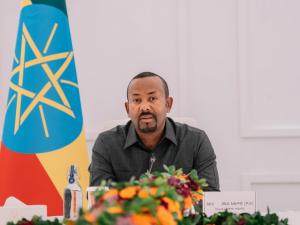
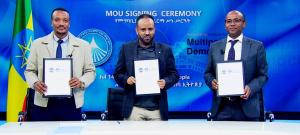
.jpg)

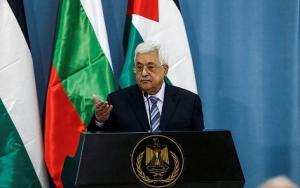


.jpg)



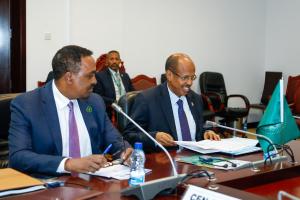
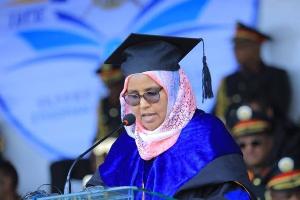
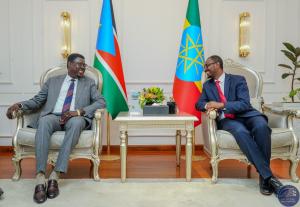
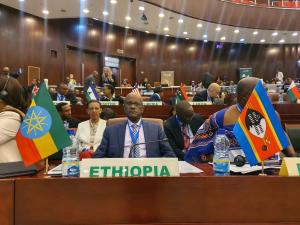
.png)



.jpg)
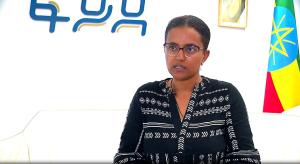
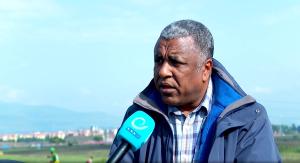


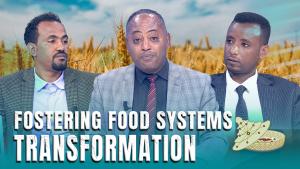
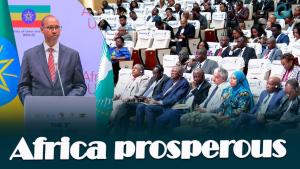
.jpg)
.png)

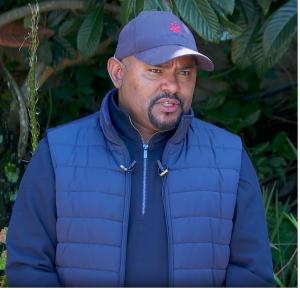
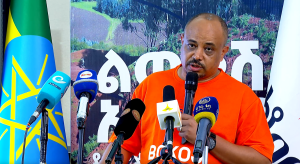
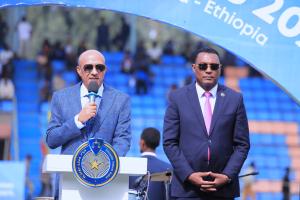

.jpg)
.jpg)
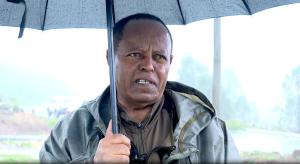
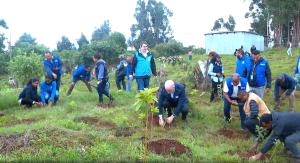

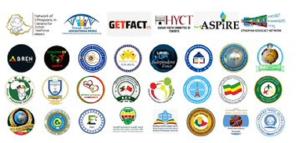

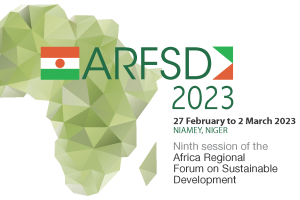
.jpg)
.jpg)